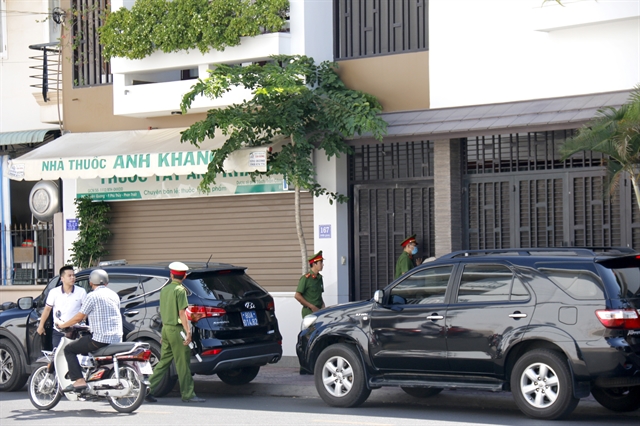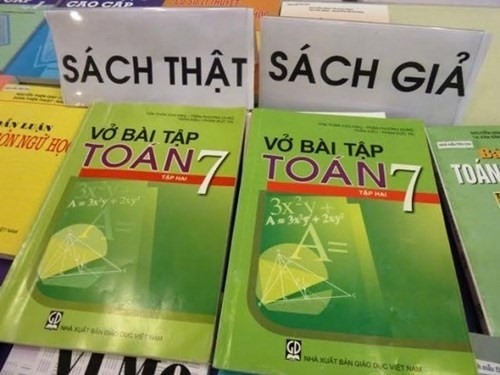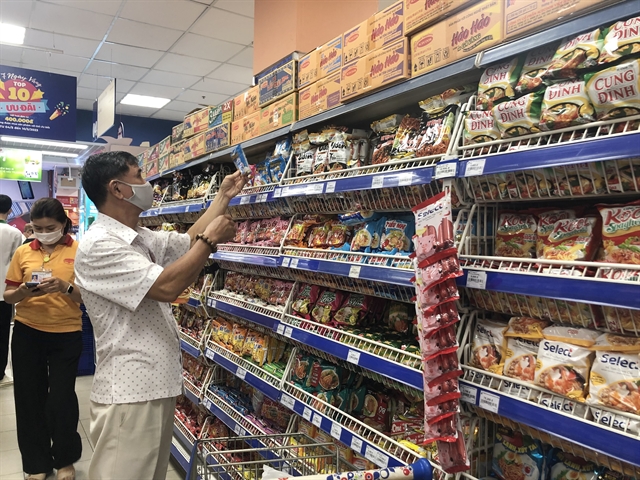 Society
Society

A new school year’s coming, the market for textbooks, reference books and study kits has begun to take off a few months ago, but functional forces have discovered and seized many cases relating in illegal printing copies of book.
 |
| An illegally printed textbook right) and a genuine one. The widespread presence of fake, pirated books are hurting legitimate publishers and printers, and could end up hurting students, too, experts say. File photo |
HÀ NỘI – For several months now, the market for textbooks, reference books and study kits has been abuzz with activity as a new school year approaches.
However, this has also kept concerned agencies busy raiding and seizing illegally printed copies of the above-mentioned materials.
The Việt Nam Education Publishing House said its investigative department has busted several cases of illegal printing in the last few months.
In Hà Nội, Hải Anh Co Ltd. was found to have illegally printed 30,000 English textbooks; the Thiên Phú Printing Factory and Hải Chiến Packaging Printing Company were discovered to illegally possess a large amount of pirated copies of English textbooks.
In the central region, the department detected illegally-printed primary school textbooks in Quảng Ngãi Province and large volumes of secondary school English textbooks in Đà Nẵng City and Khánh Hòa Province. More than 3,000 copies of textbooks, mainly in English, were collected in Đắk Lắk.
Illegal printing of textbooks isn’t something new, it has been an open secret for many years, something that has never stopped.
Authors, publishers and printing houses have pleaded for this practice to stop, but pirated books still exist despite repeated raids and fines.
No official figures are available about the damage caused, but publishers estimate losses caused by the contraband book market at several billion đồngs every year.
Previously, the activity was confined to new books and bestsellers, but now, all curricula, textbooks, reference books and English books are being printed illegally.
Typically printers involved in book piracy are unable to present contracts or have printed copies far in excess of the license.
State management offices have set up multiple inspection teams to deal with the problem, but these have not yielded expected results, leaving licensed publishers still struggling to deal with the problem of pirated books.
Vũ Bá Khánh, General Director of Hà Nội Education Development and Investment Company under the Việt Nam Education Publishing House, said the most effective anti- illegal printing solution was the use of anti-counterfeit stamps.
Many fake books of his company were discovered in the market thanks to anti-counterfeit stamps, he said.
However, observers say anti-counterfeit stamps are also faked, and consumers would find it difficult to tell between genuine and fake books. This, in turn, has affected the reputation of local publishers and their international co-operation, especially involving English books, with piracy affecting the copyrighted copies of foreign partners.
Khánh said that to stop the sale of pirated books, authorities need to check all steps closely, from the granting of licenses to the release of books. Offices failing in their duty should be held to account, and in cases where serious damage is caused, offenders must be prosecuted.
Besides, readers themselves should boycott pirated copies by buying books from reputable bookstores, he added.
Affecting consumers
Illegal printing and trading in pirated books not only harm the publishers but also readers, experts say, explaining that pirated copies can carry incorrect information, and use bad-quality paper and ink, which can hurt students.
Lê Văn Sơn, an official with Hà Nội’s market management team, said illegal printing of textbooks was a painful and alarming situation.
He said that the education sector and the market management department have jointly detected and dealt with many cases, imposing the maximum mandated fine of VNĐ30 million.
While textbook smugglers can make billions of đồng in profit every year, they are ready to pay fines and return to their illegal business, deploying even more sophisticated tricks, he said.
Nguyễn Trọng Khánh, Deputy Director of the city’s Information and Communications Department, said that anti-smuggling co-operation between the concerned departments was not forged in a stable, regular, timely manner.
He reiterated that students will suffer if pirated books with bad quality materials are used. -- VNS









